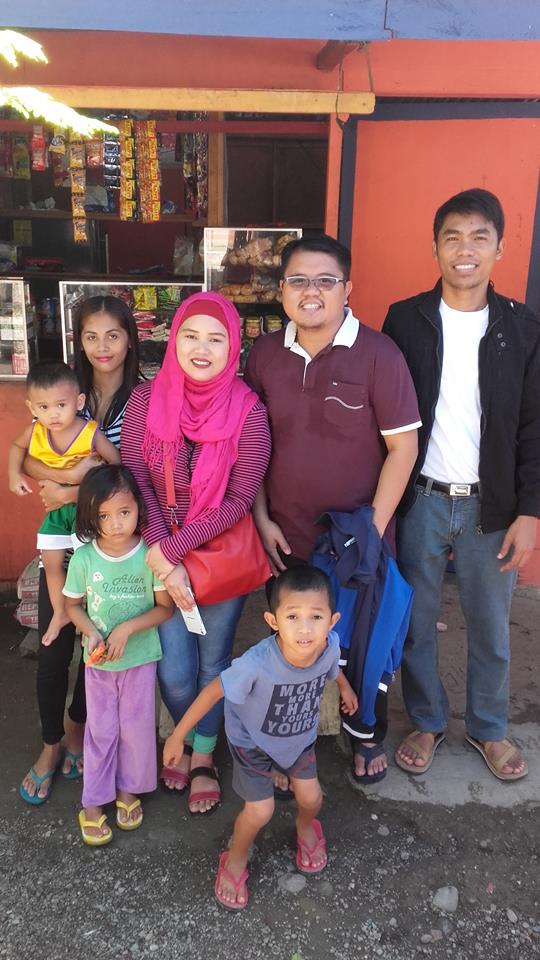Dialogue of Life: Experience Enhances One’s Understanding
Elbert Balbastro, Philippines
“Unity in the midst of diversity” is a commonly used expression in regard to engagement in dialogue. Living for two weeks in Sigayan, Sultan Naga Dimaporo, Lanao Del Norte, in Mindanao, Philippines, we encountered two distinct ethno-religious groups living in the same house. The first was the Meranao tribe, to which our host family belongs and the other was the Tala-andig, to which the woman of the house and her cousins belong (the two cousins of the woman of the house happened to be spending their vacation in the house when we arrived).
Usually, we ate together during meal times and we shared stories such us our life experiences, the people we have met and our journeys in life. One time during supper, we talked about our different cultures, religions and languages. There are many languages in the Philippines, with each different tribe having their own distinct language. For instance, my language is Ilonggo; Jerry, my seminarian companion at the time, speaks Bisaya. The Meranao speak their own Meranao language and the Tala-andig have their own, very distinct, language also.
However, despite our differences in language, one thing that stood out in all our conversations is that we all believe in one God who created the Earth and we all agreed that we have the responsibility to preserve and take care of our Mother Earth. In addition, though there are also differences in how we name or how we profess and worship the God we know, we all believe that it is due and proper to give thanks to this Mighty One. We discussed the different names of God according to our own language – Allah, Ginoo, Magbabaya, Dios – but we all agreed that this God alone is the creator of the universe. Through these discussions we developed a good friendship and we have good memories that we will treasure for many a day.
Looking back at the experience and the sharing we had, I realize that in dealing with religions or beliefs other than my own, it is better to talk about the commonalities rather than the differences. We all recognize that there are lots of differences when it comes to our traditions, beliefs and understanding of things. However, what is important for us is to recognize the oneness and commonalities among us – Ilonggo, Bisaya, Meranao and Tala-andig – foremost among which is that we believe in a God who created the world. Furthermore, it is also good to look at and learn from each other’s cultures and traditions because after all we are all Filipinos.
Coming from the Province of Iloilo, on the island of Panay, where majority of people are Christians, it was quite difficult at the beginning to cope with living in Sultan Naga Dimaporo, where the majority of the people are Meranao Muslims. Amidst my apprehensions and fears – which come from exaggerated media coverage about Mindanao and the Muslims – I learned that not all we hear is correct. We need to discover the truth by living and experiencing the Muslim way of life. I am blessed and privileged to have had this immersion experience. It has refined my understanding and has helped me to process my negative emotions and perspectives towards Muslims. Through this experience I have come to know about the culture and beliefs, not only of the Meranao Muslims but also about the Tala-andig tribe. It was the first time that I heard and that this tribe exists in the Philippines!
Experience is indeed the best teacher, because this experience has not only taught me to deal with my fellow beings but has also enhanced my understanding and attitudes towards other people regardless of race, religion, beliefs, skin-color or nationality. Dialogue of Life is about experiencing – letting ourselves be immersed in cultures other than our own – rather than just listening to the media and reading books, newspapers and social networking sites that, inevitably, give us a very incomplete picture of the world around us.

Elbert Balbastro is a Columban seminarian from Iloilo, Panay, in the Central Philippines. He entered the Columban seminary formation in June 2012. He is in his second year of Theology in Pastoral Ministry at Loyola School of Theology, Ateneo de Manila University, Quezon City, Philippines.
